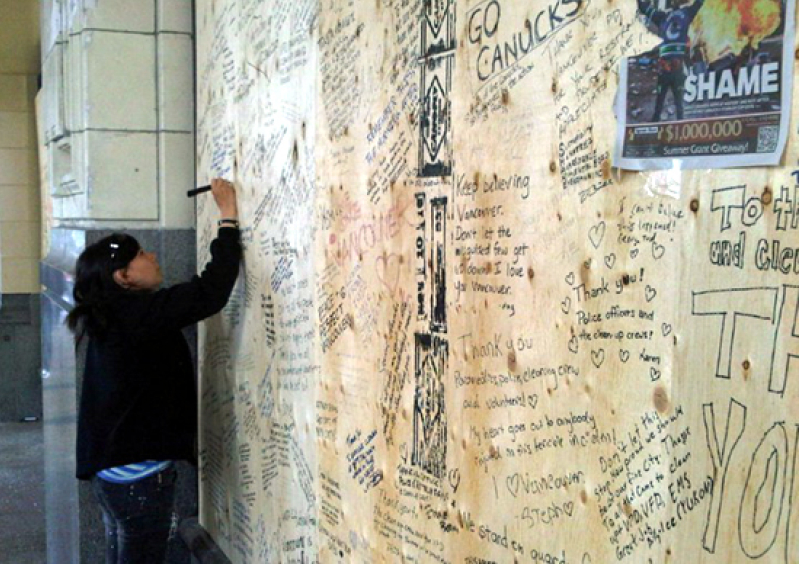


The Vancouver riot that took place after the Canucks lost to the Boston Bruins in the Stanley Cup finals made international headlines, which brought shame to the supposedly "most livable city in the world." Many citizens expressed their shock and grief at what happened.
Just hours after the riot began, people started organizing on Facebook a post-riot volunteer clean-up to help Vancouver get over this mess, and within a matter of hours over 17,000 people joined.
Not only did thousands of people showed up with their cleaning tools, they’ve also wrote down words of love, criticizing the rioters’ behaviors and proclaiming the spirit of love for each other, on the temporary wooden boards used by The Hudson's Bay Company to cover up the broken glasses.
Just a week after the riot, the "Citizen's Wall" will be removed, but under the incessant request of the public, the city government has decided to preserve them at the Museum of Vancouver located at Vanier Park for future generations to view and remember the lessons learned from this incident.
This past week's riot has caused millions of dollars of damages, where 29 shops were looted and destroyed, dozens of cars burned, and at least 150 people injured, of those 9 were RCMPs, who assisted in quelling the riot. Vancouver Police Chief Jim Chiu blamed “anarchists and criminals” for the riot, which had been pre-mediated, for a small group of people have brought weapons and gasoline cans.
Thousands of by-standers have uploaded on the web their pictures and videos taken at the riot, showing rioters flipping over a car, looting, setting fire, breaking store front windows, etc. Some people have setup www.canucksriot2011.com, where photos and videos containing footages of the rioters mayhem can be uploaded and then turned over to the police department.
Till now, 12 people have turned themselves in to the Vancouver police, and three others to the police department from outside of Metro-Vancouver.






